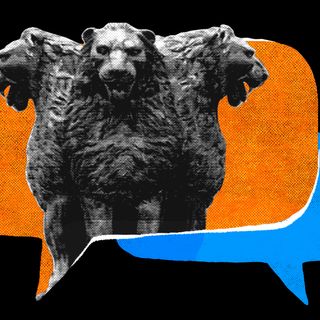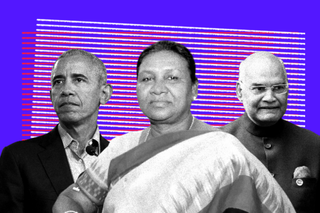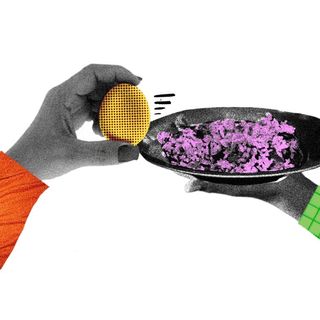
Why Representation in Politics May Not Address Systemic Oppression
An adivasi woman may become the next President of India. Without systemic change, this may still not change how the state treats Adivasi communities.

The ruling alliance picked Draupadi Murmu, an adivasi woman, as its candidate for the upcoming presidential election. Only the second-ever adivasi to be nominated for candidature, Murmu will become the first woman from a scheduled tribe to hold the office of the Head of State of India if she wins. It is a historic moment in the country’s 75-year long history of independence. There is potential for Murmu’s presidency, if she wins the election, to be a marker of hope for the most marginalized communities in this nation. So far, so good. Progressive voices on social media, however, remain skeptical of Murmu’s ascension bringing any substantial change in the lives of ordinary adivasis, who have been exploited under every regime, including the current one. They repeat the long-held notion that the president is only a ceremonial head who rarely plays a role in governance apart from acting as a “rubber-stamp” for the ruling government of the time. Further, previous presidents from marginalized and minority backgrounds have rarely voiced the concerns of others from their communities.
The incumbent president, for instance, is a Dalit man. Nominated by this same ruling alliance, Ram Nath Kovind is only the second Dalit president this republic has had. But his silence on key Dalit issues is why some suggest that he was picked in the first place. Indeed, an analysis of questions he raised in Parliament during his two terms as a Rajya Sabha MP shows that he never directly raised the issue of atrocities against Dalits. The situation on-ground belies his silence — during 2018-20, reports show that the country saw 1.3 Lakh cases of crimes against Dalits registered in police stations across India. A bulk of these cases (over 36,000) occurred in Uttar Pradesh, Kovind’s home state. Cases in his tenure include the 2018 Bhima Koregaon violence, the institutional murder of Dr Payal Tadvi in 2019, and the brutal gang-rape and murder of a Dalit woman in Hathras in 2020.
This silence or inaction is not unique to Indian politicians, but is a larger systemic problem that has parallels elsewhere, including in the United States of America. In 2008, Barack Obama won the election for President of the US riding on a campaign that promised hope to the voters, particularly African Americans. Obama was born to a Black father, and he claimed that he represented the vision of every non-White American who wanted to imagine themselves running the country. Yet, after two long terms as President, Obama failed to bring substantial change in the lives of the Black people who voted for him. In public appearances, Obama rarely, if ever, addressed directly the issues particular to African American lives and the structural racism that led to those. His critics within the black community itself point out that he never confronted issues such as the racial wealth gap or the racist bias in White American policemen.
Scholar Anand Teltumbde’s analysis of a particular incident can help us understand the limits of face-value representational politics. In his book, The Persistance of Caste,Teltumbde provides an account and analysis of the Khairlanji Massacre. In 2006, four members of a Dalit family were raped, murdered, and mutilated by the entire non-Dalit population of the village of Khairlanji in Maharashtra. In the aftermath of the incident, state institutions actively worked towards subverting justice, and the media remained silent about the massacre itself. Teltumbde points out that at several points after the brutal massacre, the state-actors responsible for the suppressing of facts and carrying a shoddy investigation were themselves Dalits. These included the forensic doctor who botched up the process, a key police officer in the investigation, and politicians trying to soothe the anger of protestors.
Related on The Swaddle:
More Women in Parliament Reduces Corruption, Study Finds
The misconception that representation in politics is inherently egalitarian ignores the fact that the system still predominantly consists of their oppressors. A few individuals yield much less power than a system stacked against them — once they become a part of it, it becomes their job to uphold the same system of the oppressors. Moreover, while protesting against the system occasionally may look like a bold statement to make, participants in the system stand to benefit much more personally when they uphold and extend it.
In his famous speech Annihilation of Caste, Dr Ambedkar quotes Albert Venn Dicey, a British Whig Jurist and Constitutionalist, to indicate how reform in a system while participating in it can never be truly emancipatory. Dicey, speaking on the limitation of the legislative supremacy of the parliament, had said “People sometimes ask the idle question, why the Pope does not introduce this or that reform? The true answer is that a revolutionist is not the kind of man who becomes a Pope, and that the man who becomes a Pope has no wish to be a revolutionist.” The system, then, can only be forced to incorporate structural changes demanded from outside. Face-value representation on the inside will never be able to erode its hold over the oppressed.
Does this mean that representative politics is entirely meaningless? Not necessarily. In his book on Khairlanji, Teltumbde notes how the absence of Dalits in leadership roles in national media led to a prolonged negligence of the incident despite the horrific nature of the episode. In 2020, however, Dalit-run media organizations were among the first to reach Hathras and amp up its coverage to make the crime a national issue. These organizations, and media organizations founded and run by Muslims to specifically focus on their persecution, were formed because they felt their was an absence in mainstream media, at times even in otherwise seemingly progressive media organizations, to focus on their issues, stemming from their severe underrepresentation in mainstream outlets.
There is a perception, shared often in progressive political circles, that identity politics can erode liberal democracies and affect true progressive economic development. But, the refusal to share space with a community on the margins is also the refusal to acknowledge their existence. The fact that there have only been two ST Presidential Candidates (one of whom lost) in more than seven decades of India as a republic speaks volumes about our acknowledgement of the original inhabitants of this land.
Humans, especially when they are pushed to the margins, attach deep meaning to symbols and signs. To the forever persecuted adivasis, confined to the darkest corners of India’s industrial and economic development, Draupadi Murmu’s presidency can signify their long-awaited inclusion in its vision 75 years after independence. What remains to be seen, if Murmu is elected, is whether she would give meaning to that hope or if she would, like her predecessors, grace it with her silence.
Amlan Sarkar is a staff writer at TheSwaddle. He writes about the intersection between pop culture and politics. You can reach him on Instagram @amlansarkr.
Related


Why Is Removing Meat and Eggs From School Midday Meals Casteist? We Ask an Expert.
